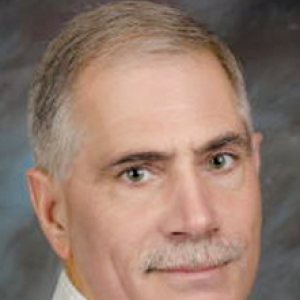Commercial
J D & M Llc/Sprague Construction Roofing Division, 2043 Grand Ave, Com Fence/Roof/Siding, $45,475
Sisters Of Charity Of Lvnwrth/ Perfect 10 Roofing, 1144 N 30th St, Com Fence/Roof/Siding, $98,000 R
McCall Development /Mccall Development, 1683 St George Blvd, Com New Townhome Shell, $870,141
Western Sky Billings Llc/Beartooth Holding & Construction On, 4610 Crescent St – A1,
Com New Warehouse/Storage, $314,070
Western Sky Billings Llc/Beartooth Holding & Construction, 4610 Crescent St – A,
Com New Warehouse/Storage, $270,750
Western Sky Billings Llc/Beartooth Holding & Construction, 4610 Crescent St – B,
Com New Warehouse/Storage, $635,360
Western Sky Billings Llc/Beartooth Holding & Construction, 4610 Crescent St – C,
Com New Warehouse/Storage, $635,360
Western Sky Billings Llc/Beartooth Holding & Construction, 4610 Crescent St – D
Com New Warehouse/Storage, $714,780
Western Sky Billings Llc/Beartooth Holding & Construction, 4610 Crescent St – E,
Com New Warehouse/Storage, $714,780
Western Sky Billings Llc/Beartooth Holding & Construction, 4610 Crescent St – F,
Com New Warehouse/Storage , $845,823
Ross Alger Holdings Llc/Bauer’s Handyman Services, 2147 Poly Dr, Com Remodel, $40,000
Na/Saunders Industries, 2900 12th Ave N, Com Remodel, $292,000
Rocky Mountain Professional Pr/ Jorden Construction, 1690 Rimrock Rd, Com Remodel, $100,000
Sheppard Realty, Llc/Smooth Rock Drywall, 1655 Shiloh Rd, Com Remodel, $15,000
Mt Heights Senior 4% Lllp/Alpha-Omega Disaster Restoration, 211 Starner Ln, Com Remodel Multi-Family, $250,000
Christ The King Lutheran Church, New Construction Of Church, 759 Newman Ln, Com New Church/School, $1,800,000
Na /KE Construction Llc, 2145 Blue Creek Rd, Com New Warehouse/Storage, $1,143,648
Swenson, Randall D (1/2 Int)/Beartooth Holding & Construction, 1547 41st St W, Com Remodel , $150,000
Ponderosa Acres Partners LP/MFIB AZ, Llc, 1301 Industrial Ave, Com Remodel, $23,570
Northern Plains Resource Council/Diamond Construction Inc, 220 S 27th St, Com Remodel, 111,774
G Rock Building Llc, 2248 Grand Ave, Com Remodel , $50,000
J & S Properties Inc/ Jones Construction, Inc, 1518 1st Ave N, Com Remodel, $14,500
Residential
Na/McCall Development, 1683 St George Blvd, Res New Accessory Structure, $33,792
Na/McCall Development, 1675 St George Blvd, Res New Accessory Structure, $42,240
Na/ McCall Development, 1707 St George Blvd, Res New Accessory Structure, $40,000
Buscher Construction/Buscher Construction Ltd, 6326 Southern Bluffs Ln, Res New Single Family, $211,609
Aviara Inc/ Buscher Construction Ltd, 6334 Southern Bluffs Ln, Res New Single Family, $211,609
DCL Ventures Llc/RHC Construction Llc, 5420 Riesling Ln, Res New Single Family, $344,240
Infinity Home/Infinity Home Llc, 2208 Lindero Blvd, Res New Single Family, $251,558
Dorn Property Llc/Kisling Quality Builders, 1440 Naples St, Res New Single Family, $230,000
Copper Ridge West Inc/Bob Pentecost Construction, 7027 Copper View Way, Res New Single Family, $365,900
Copper Ridge West Inc/Bob Pentecost Construction, 3137 70th St W, Res New Single Family, $346,90
Trio Construction LC/ Art Work Builders, 1227 Watson Peak Rd, Res New Single Family, $245,582
CDH, Llc/CDH, Llc, 220 Gleneagles Blvd, $226,485
Mountain Range Llc /Formation Inc, 4631 Elk Ridge Trl, Res New Single Family, $278,421
Wagenhals Land And Livestock L/ Wagenhals Enterprises Inc, 1114 Daybreak Dr, Res New Single Family, $242,348
HAD Inc, 1433 Rancho Vista Ave, Res New Single Family, $257,257
Trail Head Builders Of Montana/ Trailhead Builders Of Montana Llc, 1423 Emma Ave, Res New Single Family, $251,932
Trail Head Builders Of Montana/Trailhead Builders Of Montana Llc, 1426 Tania Cir, Res New Single Family, $239,530
Bob Pentecost/ Bob Pentecost Construction, 3032 Forbes Blvd, Res New Single Family, $356,000
McCall Development/McCall Development, 1683 St George Blvd, Res New Townhome, $43,507
McCall Development/McCall Development, 1679 St George Blvd, Res New Townhome, $43,507
McCall Development McCall Development, 1675 St George Blvd, Res New Townhome, $43,507
McCall Development/McCall Development, 1671 St George Blvd, Res New Townhome, $43,507
Edwards, John W & Hollis S, 602 Poly Dr, Res New Accessory Structure, $30,000
Boom Farm Llc/Stocky’s Custom Carpentry Llc, 536 Parkhill Dr, Res New Accessory Structure, $70,000
Classic Design Homes/Duke’s Concrete Construction, Permit Expired Voided 5/16/19, 7020 Shiny Penny Way, Res New Single Family, $209,645
Reichenbach Properties, Llc/Kay Homebuilders Llc, 2050 Gayle Dr, Res New Single Family, $300,000
Long, Joel T, 4612 Rangeview Dr, Res New Single Family, $691,624
Square Butte Builders/Square Butte Builders Llc, 2314 Clubhouse Way, Res New Single Family, $294,776
Eddie Jorden, 3340 Tahoe Dr, Res New Single Family, $320,000
Hg Designs/ Hll Llc, 2710 Tulane Dr, Res New Single Family, $228,430
Art Work Builders/ Trio Construction Lc, 1392 Watson Peak Rd, Res New Single Family, $239,438
Diverse Construction Llc/Diverse Construction Llc, 2324 Clubhouse Way, Res New Single Family, $209,664
Cdh, Llc/Cdh Llc, 2136 Lakehills Dr, Res New Single Family, $333,126
Trio Construction Lc/Art Work Builders, 1380 Watson Peak, Res New Single Family, $246,157
Hg Design/Hg Designs, 2711 Tulane Dr, Res New Single Family, $400,000
Formation Inc/Formation, Inc, 4606 Silver Creek Trl, Res New Single Family, 305,220
Drew Stensland /Bauer Construction, 7002 Shiny Penny Way, Res New Single Family, $336,030 Boyer Land Llc/Design Builders, Inc, 2523 Aspen Creek Trl, Res New Single



